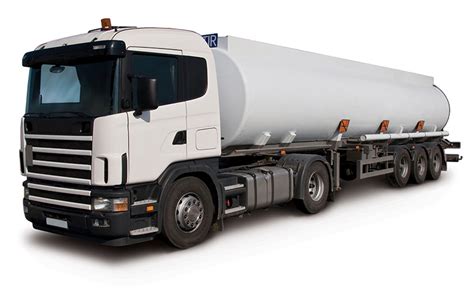At the moment Britain is currently suffering from a fuel crisis. There is apparently enough fuel in the refineries but the problem is there is a lack of suitably qualified HGV drivers to move the fuel to the petrol stations. Because there is a perception among the public that the fuel is running out, there has been panic buying. The calls from government for the public to ‘not panic’ have gone unheeded because Britons have been lied to so much over so many years by politicians over issues as diverse as the economy through to immigration, that the public has chosen not to believe the politicians on the subject of fuel availability. After all if you’d been lied to about other matters by politicians would you choose to believe them on the matter of fuel supplies?
However there is another aspect to this fuel panic that is not down to the government but instead connected to the way that some fuel haulage companies treat their drivers. Because some of these companies treat their drivers like dirt, those experienced drivers who were able to take early retirement did so and the working conditions for HGV fuel tanker drivers are so bad that it puts off younger people from joining the profession. In the past the fuel haulage companies have been able to get away with treating drivers badly because they had a steady supply of foreign drivers willing to work for crap pay and accept bad conditions in order to send back money to their families who often live in countries where the cost of living is less than that found in the UK.
We should not forget that HGV drivers have to pay for their own training and also have to pay out of their own pockets for the extra certification needed to carry hazardous cargoes like fuel. Couple that with being charged upwards of £50 per night to sleep in their cabs in motorway service stations and often being treated badly at loading and unloading points and you have a situation that becomes very unappealing for those considering entering the profession. Over regulation of the industry and the subsequent costs that this entails is also preventing those who want to enter the profession as an owner driver which means that much of the haulage industry is in the hands of those larger companies who want to squeeze ever last penny of value out of their drivers.
To give a flavour of what some drivers think of one particular fuel haulage company it’s worth taking a look at what drivers and former drivers are saying about the Hoyer company over on the Indeed website. There you will find drivers complaining about late pay, poor conditions, bad management and how drivers are treated not as the professionals that they are but ‘just a number’.
Whilst the complaints listed above relate to only one company, I would not be so naive to assume that poor pay for a skilled job and poor treatment of drivers is confined only to that one entity. I’ve seen screenshots of the pay scales for other big haulage companies and they are not commensurate with the responsibility of the job. One company, whose lorries are seen up and down the country, was paying £12.50 per hour for regular hours and £15 per hour for Sundays and Bank Holidays. This is clearly not enough money for what is a very skilled and responsible job. These pay rates might just about be acceptable if the drivers themselves were given decent facilities when they take their compulsory breaks or when loading or unloading, but that’s not the case. The drivers face bad pay coupled with poor and expensive rest facilities, being treated like scum by those at loading and unloading points as well as having to be away from their families for days or even weeks at a time.
The working conditions for HGV drivers although already bad, got worse during the pandemic. I’m hearing accounts of drivers who were forbidden from leaving their vehicles at delivery destinations and refused access to facilities such as toilets and cleaning facilities. The pandemic and the reaction to it by the customers of haulage companies has made an already stressful job worse. With conditions like these is it any wonder that long serving experienced drivers are leaving the industry with less and less people wanting to replace them.
As I’m currently reading an excellent piece by Rabbi Jill Jacobs on Jewish business ethics in addition to observing the current fuel situation I’m becoming increasingly convinced that haulage companies are too often behaving unethically towards their workers. What’s worse is that the drivers have very little leverage or clout to improve their conditions.
Jewish law divides workers into two types, the skilled artisan, the kablan, who makes individual items for example a silversmith working on commission and other workers who for example work in the fields who are called poel. The kablan is in a pretty advantageous position with regards to their employer as if the employer refuses to pay them or tries to pay them less than agreed then the kablan can keep the item that they’ve been commissioned to make, thus giving the kablan some recompense. On the other hand the poel does not have such an advantage. They have no commissioned item that they can hold back from the employer in lieu of wages and what’s worse is that if they are not paid then the poel and their family might starve.
The difference between the two types of worker is why Jewish law prohibits paying those who are poel’s after sunset on the day that the work is done. The employer cannot hold back the wages of the worker until the next day as the worker may need the money today in order to buy food. This is all set out in the Book of Deuteronomy 24 14:15 which says:
Do not oppress the hired laborer who is poor and needy, whether he is one of your people or one of the sojourners in your land within your gates. Give him his wages in the daytime, and do not let the sun set on them, for he is poor, and his life depends on them, lest he cry out to God about you, for this will be counted as a sin for you.”
The Talmud also has within it rules regarding the protection of those who are poels. As Rabbi Jacobs points out, the Talmud in a discussion on the protection of workers and about prompt payment says in tractate Bava Metzia 112a:
Why does he climb a ladder or hang from a tree or risk death? Is it not for his wages? Another interpretation–‘His life depends on them’ indicates that anyone who denies a hired laborer his wages, it is as though he takes his life from him.
This is completely correct. There are a lot of jobs that need doing that would not be done unless the worker was paid to do them. Also the worker needs to be treated well as well as being paid a fair rate for the job.
Having read stuff like that written by Rabbi Jacobs and knowing what I know via familial connections to those in the haulage industry I’m becoming convinced that many haulage companies are treating their staff unethically. They are not paying the proper rate for the job bearing in mind the responsibility and degree of training required for it and they are not behaving ethically by holding back monies such as those owed for overtime payments.
The average HGV driver is in a bad position. They are in the position of a poel. They cannot just walk off or drive off with the lorry if they are not paid or treated unfairly and hold it until they are paid or treated better as would be the case if they were a kablan working under a commission, they are too often in a very vulnerable situation. The problem is that too many haulage companies are exploiting their drivers unfairly, paying them less than the job is worth and not making a difficult job any easier by denying them proper facilities for rest and refreshment.
We are short of drivers to deliver fuel partially because those who worked here who came from overseas have seen better and better paying opportunities elsewhere, which is not in itself related to Brexit. Those drivers who have remained, whether British or foreign drivers are paid badly and often working in appalling conditions. The workforce is ageing and a lot of drivers are getting out early as they see no potential improvement in the working conditions. Because the working conditions are so bad and the pay is less than it should be younger people will not enter the profession and over-regulation and its associated costs is deterring those who might want to work in the industry as owner drivers.
The goods are there, the fuel is there, but we, or rather the haulage companies, too often treat those who deliver the goods and fuel like crap and there’s only so much crap that the drivers will take before they get out and either retire or move to a less stressful and better paid industry.
Whenever I eat or drink I’m supposed to say a bracha or blessing over what I’m about to consume in order to thank the Eternal One for it. Maybe as well as saying blessings over what we consume, we should also thank the lorry drivers who bring it to us? Remember if its on your table or in your fridge or in your fuel tank then a lorry driver brought it to you.
Britain cannot go on treating vital and important workers like lorry drivers like dirt. If we do then all that will happen is that there will be less people to deliver those goods that we need and shortages will only get worse.






Whilst I agree that people don’t believe what pollies say for very good reason, I also think that the media has done its utmost to whip up fear of shortages and thus panic buying.
There were no queues at my local petrol stations until a day or so after the BBC started running fuel shortage headlines at the top of every newscast (if the Beeb can still be considered a purveyor of news). By Saturday the main road was gridlocked for a mile or more with people panic buying fuel and also preventing others just going about their journeys.
So IMO the media as created a self-fulfilling prophecy yet again about shortages.
Who has forgotten the Great Bog-roll Shortage of the lockdown for example, another case where (generally) only panic buying created the problem and only after the media had whipped up the panic.
I completely and utter agree with your view of the media’s role in all this. There might be localised supply issues but outlets like the BBC have made things a whole lot worse. Sky also have played their part in talking up potential shortages. The media are reveling in this and whilst this might be the media’s normal conduct of ‘if it bleeds it leads’, I also wonder whether there is a coterie of Remainer journalists who are using this story to push their own Remainer views?
Yes I filled up my car just before the panic got going but that wasn’t because I was panic buying, it was because we have a few long schlep journey’s to do over the next week. I do however have 1 gross of toilet rolls on their way but that’s not because I’m panic buying, it’s just that I was offered an incredibly good deal from a janitorial supplies company.
“I also wonder whether there is a coterie of Remainer journalists who are using this story to push their own Remainer views?”
Over on Sky News they actually managed to find a queuing motorist who blamed the ‘fuel shortage’ on Brexit. One wonders how long it took the remain-reporter to find the numpty.
At least these twits are in a minority according to a YouGov poll; 47% of Britons blame the media for the shortage and 22% panic buying idiots, perhaps 1% blamed brexit (if I assume that all 1% of “other” – Brexit).
Yeah saw that poll over at Guido’s place. The Remainer Media is indeed searching out for anything that can be used to make Brexit look bad. BTW have you heard about the latest benefit of Brexit, something that puts Britain and its agritech industries way ahead of the EU? Because of Brexit we can now have cisgenic edited crops which could mean less input in terms of pesticides and less waste at cropping.
Re Agritech: Yes I had.
I am still wary about GM (transgenic crops) because its very hard to persuade bees and other pollinators not to cross-pollinate normal and GM crops and there is the problem of ownership of the trans-genes as well (Monsanto has been widely and deservedly attacked over its attitudes on that).
The less “unnatural” process of gene editing is much more like accelerated artificial selections and so, IMO, poses far fewer risks (probably none) for some very useful benefits. But I hope that HMG will not allow Agritech companies to “do a Monsanto” when it comes to the inevitable “escape” of edited genes.
That said, the first cisgenic crop the “flavasava” tomato was a commercial failure (AFAIK).
The 1% potentially blaming Brexit according to YouGov is a marked contrast to what I found on twitter when searching #petrol a few days ago; I’d say a good third of the tweets were variations on the theme of Brexit being the real reason for the shortages.
That being so, I find myself wondering whether some, at least, of the waiting cars, especially in the early news footage, were there not because they needed to fill their tanks but for political reasons – it would be relatively easy, given social media, to summon a band of like-minded activists to pad out the queues and further destabilise the situation.
It may sound far-fetched, but it’s the surely only way to account for those motorists who, according to the AA’s president, baffled garage staff by queuing up for ages and then putting in less than £2.50 worth of petrol.